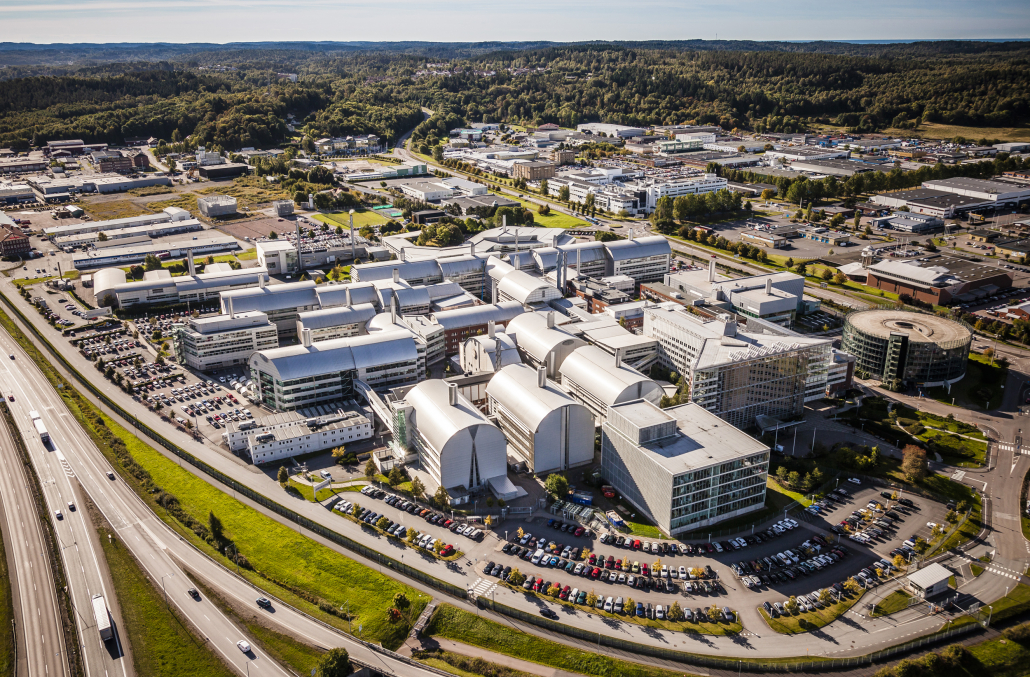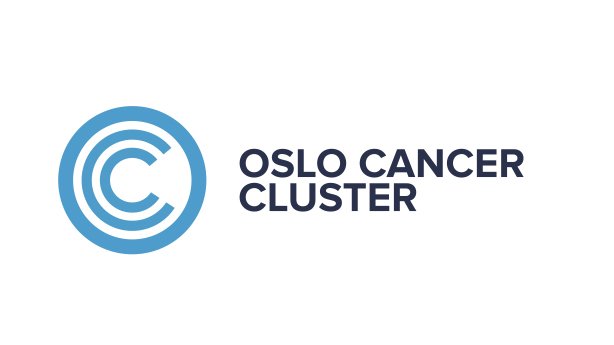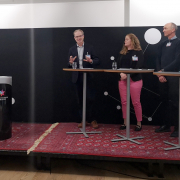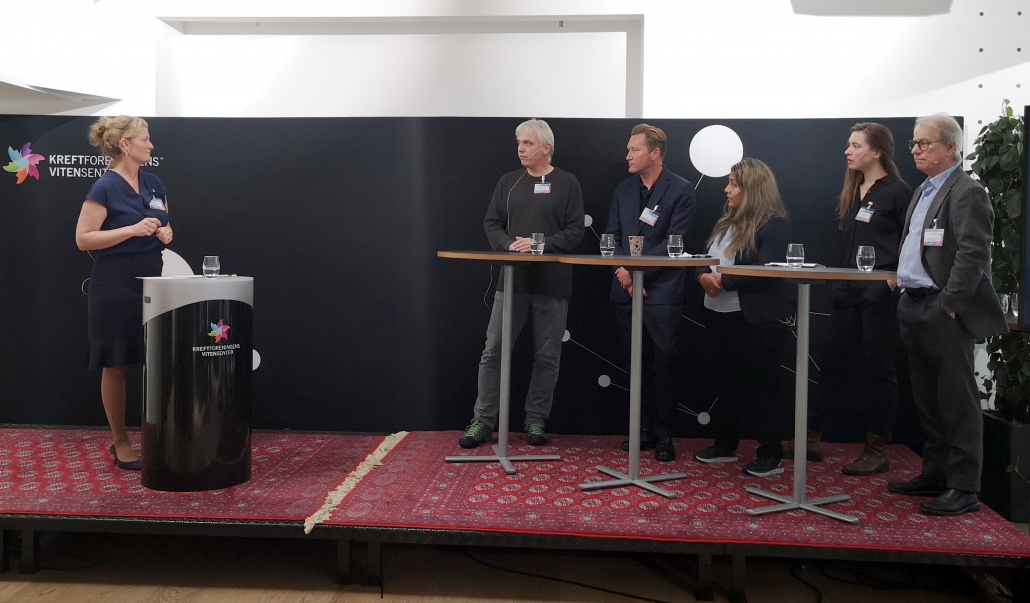Health companies gained investors’ attention
Strong Norwegian oncology presence at DNB Nordic Healthcare Conference 2022.
The DNB Nordic Healthcare Conference was back with in-person attendance last week, connecting some of the best Nordic health companies with eager investors at the DNB main office in Oslo.
“Health is key in Norway’s transition to a green economy. DNB shows great social responsibility by bringing together key players in business, investment, and health. It is encouraging to see the high-quality of the companies at this conference,” commented Ketil Widerberg, general manager at Oslo Cancer Cluster.
The conference included four different sessions with company presentations. A total of 14 members from Oslo Cancer Cluster were there, demonstrating the first-class cancer innovation emerging from Norwegian research environments.
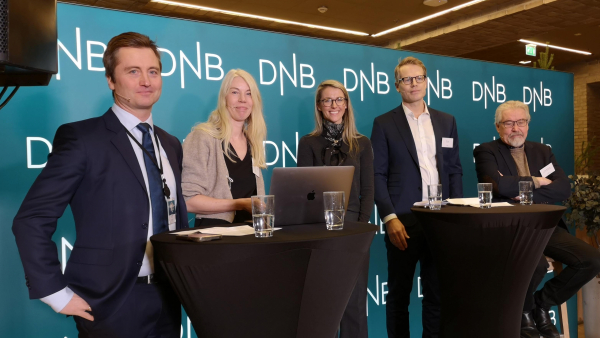
The podcast Radium, produced by the investment fund Radforsk, also recorded an episode with perspectives on where the Nordic healthcare sectors.
Up-and-coming companies competed
Eleven health start-ups competed for the Health Prize of NOK 1 million during the Venture Session. Six members of Oslo Cancer Cluster were selected for this competition, and two were fast-tracked for the final. Here are snapshots from their pitches:
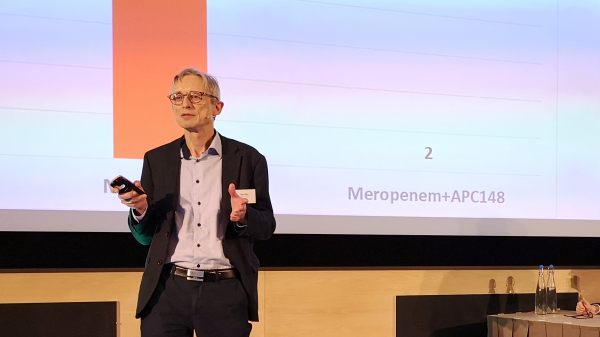
Bjørn Klem presented Adjutec Pharma, a company fighting against the global crisis of anti-microbial resistance.
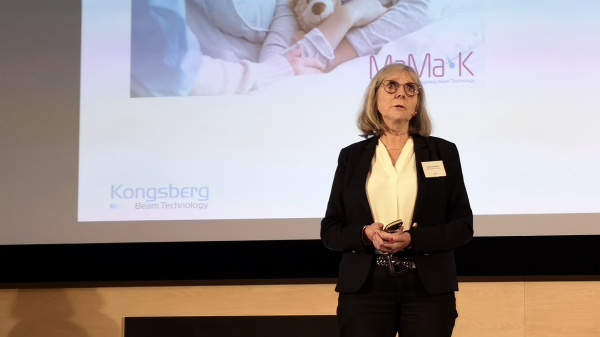
Kerstin Jakobsson presented Kongsberg Beam Technology, a medtech start-up developing the next generation’s proton radiation therapy, by personalising the treatment for each patient.
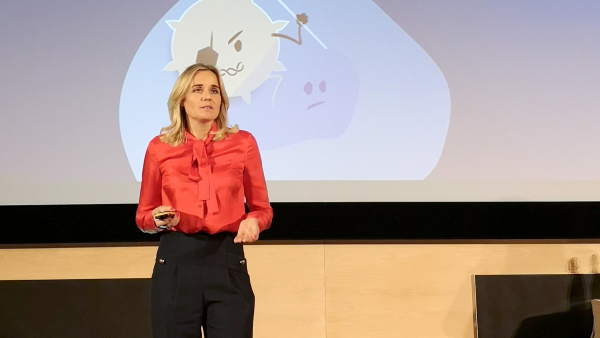
Katja Vetvik presented Thelper, a Norwegian company that is developing targeted immunotherapies against cancer.
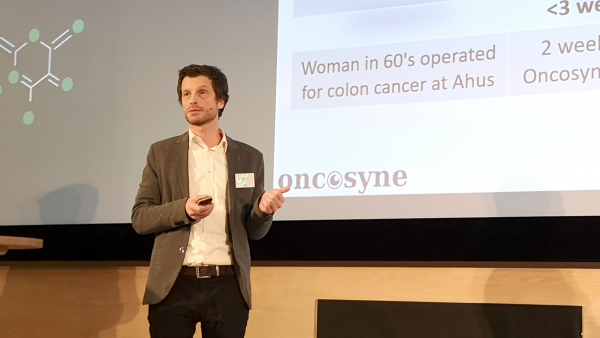
Peter W. Eide presented Oncosyne, a company that will provide game-changing functional diagnostic tools that give cancer patients significantly better and longer lives.
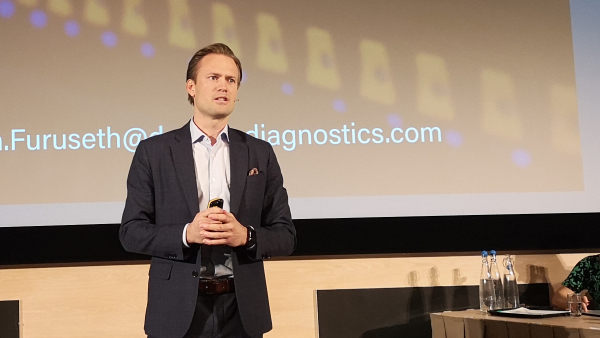
Torbjørn Furuseth presented DoMore Diagnostics, a company that is transforming cancer diagnostics with artificial intelligence.
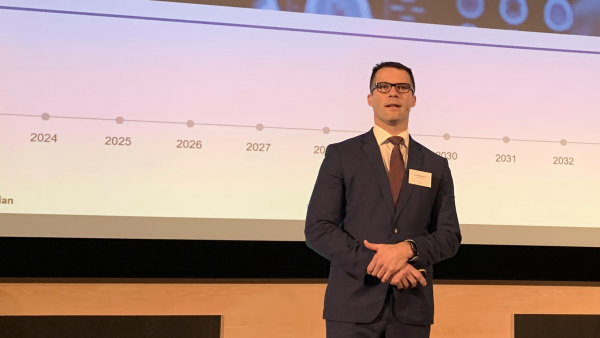
Adam Robertson presented Hemispherian, a company developing a pipeline of first-in-class epigenetic therapeutics against aggressive cancers.
The companies ArxxTherapeutics, Bulbitech, Clexbio, Helseboka and Nadenod also pitched in this session. After a nerve-racking final, with heated discussions in the investor panel and a packed auditorium voting for their favorite start-up, Clexbio won the prestigious prize.
Oncology companies drew a crowd
There were two sessions with listed companies and one session with private companies, including 9 members from Oslo Cancer Cluster in total. The rooms filled up quickly, and the companies received many questions from curious investors. Here are some messages from their presentations.
Dan Schneider, CEO of Photocure, described how the company is improving the lives of bladder cancer patients with unique photodynamic technology for diagnosis and treatment. Visit the Photocure website to learn more.
Jan Alfheim, CEO of Oncoinvent, presented how the company uses alpha-emitting radiotherapeutics to kill all cancer cells in body cavities, including micro-metastatic disease. Visit the Oncoinvent website to learn more.
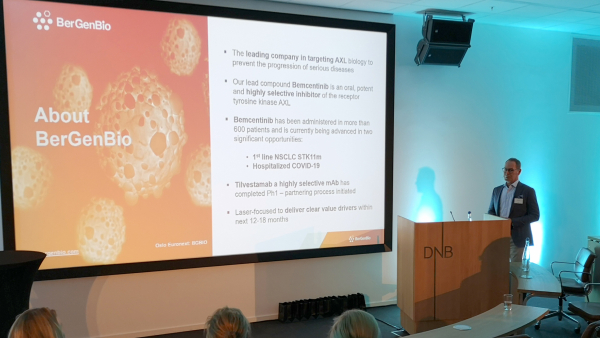
Martin Olin, CEO of BerGenBio, introduced how the company uses targeting AXL inhibitors to prevent the progression of cancer.
Visit the BerGenBio website to learn more.
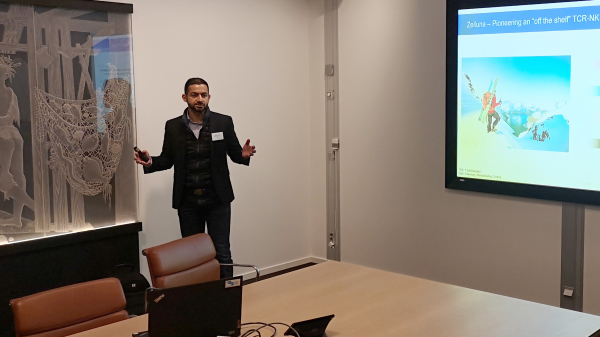
Namir Hassan, CEO of Zelluna Immunotherapy, talked about how the company wants to save lives through innovative cancer-targeted cell therapies, using the unique TCR-NK technology.
Visit the Zelluna Immunotherapy website to learn more.
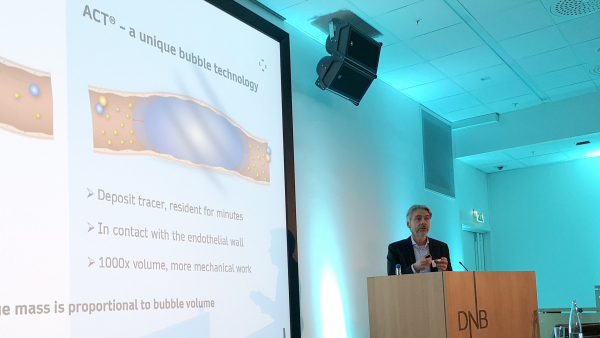
Per Walday, CEO of Exact Therapeutics, informed about how the company improves drug delivery with an ultrasound technology platform, using specifically designed microbubbles.
Visit the Exact Therapeutics website to learn more.
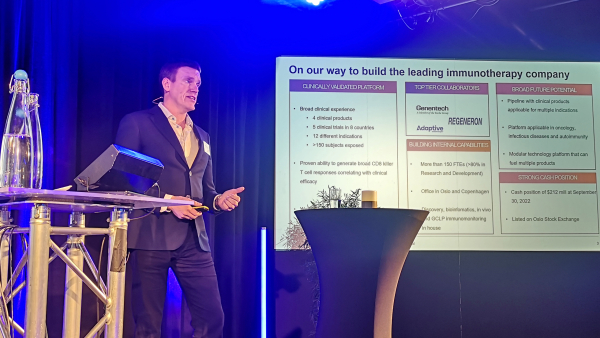
Mikael Engsig, CEO of Nykode Therapeutics, addressed how the company’s unique vaccine technology platform has the potential to be applicable to several disease areas.
Visit the Nykode Therapeutics website to learn more.
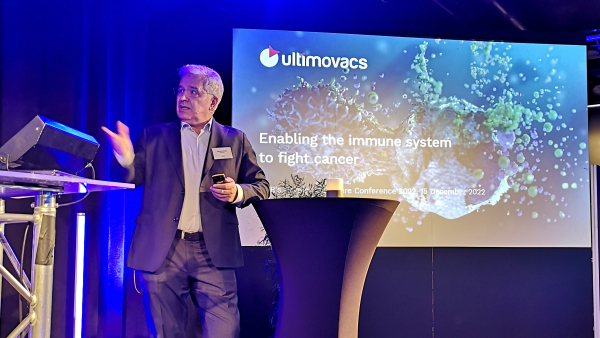
Carlos de Sousa, CEO of Ultimovacs, focused on the company’s next-generation universal cancer vaccine, that can educate the immune system to recognize telomerase, an enzyme that is expressed in 85% of all cancer types.
Visit the Ultimovacs website to learn more.
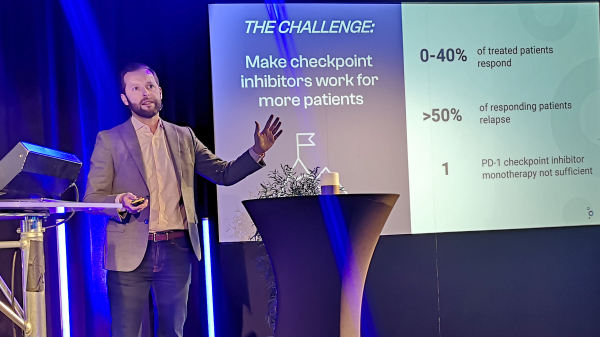
Erik Wiklund, CEO of Targovax, spoke about how the company wants to make PD1 checkpoint inhibitors work for all patients, with the company’s oncolytic therapy.
Visit the Targovax website to learn more.
The conference was organised by DNB with support from Oslo Cancer Cluster and Norway Health Tech. The event also collaborates with the following Norwegian clusters and networks in healthcare: The Life Science Cluster, Norwegian Smart Care Cluster, The Life Science Cluster, Norwegian Inflammation Network, Nansen Neuroscience Network and Aleap.

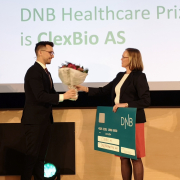
 Unsplash / Kenta Kikuchi
Unsplash / Kenta Kikuchi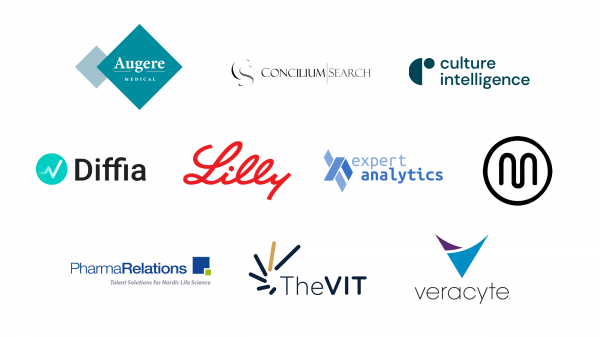
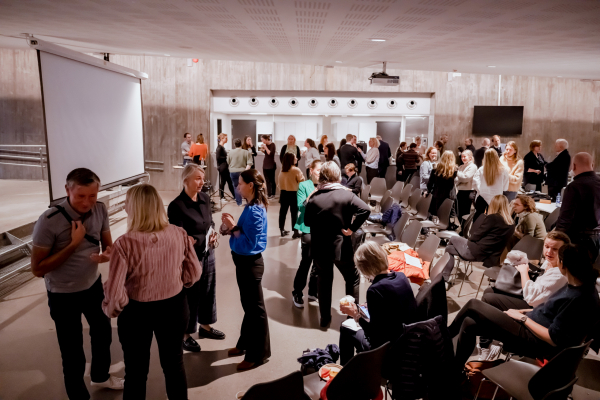
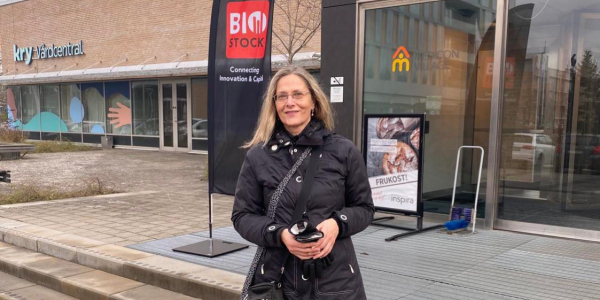
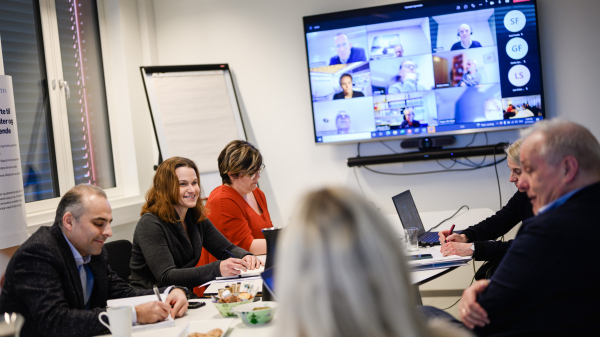
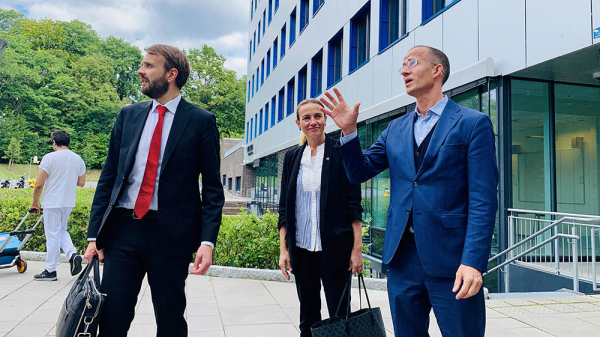
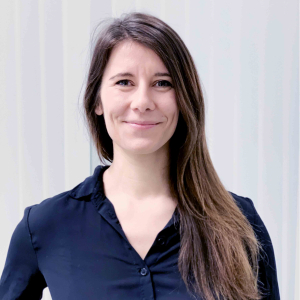
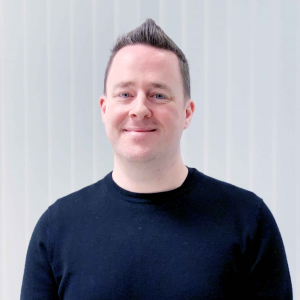
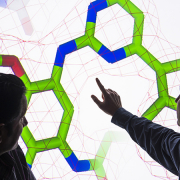 AstraZeneca
AstraZeneca